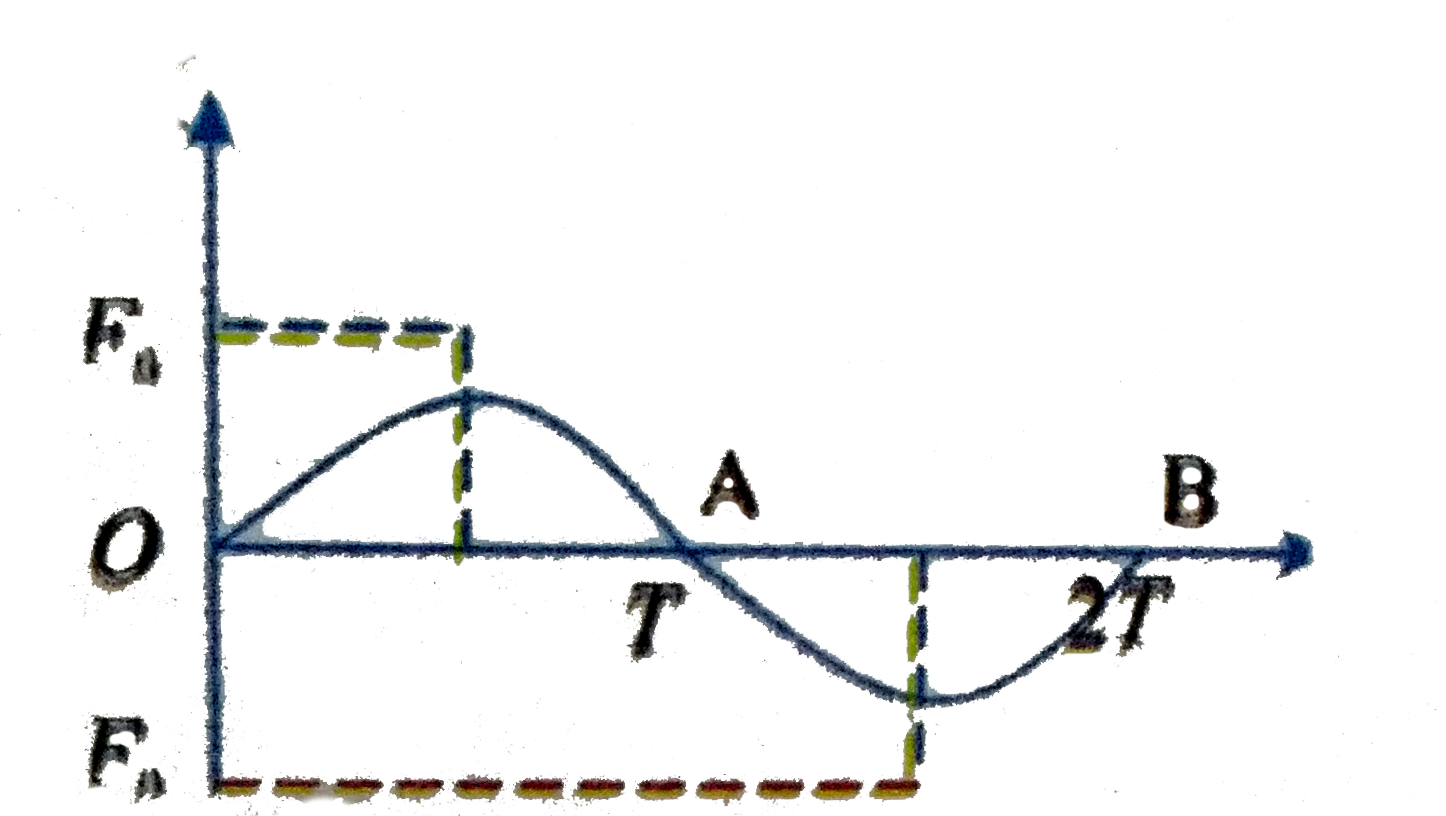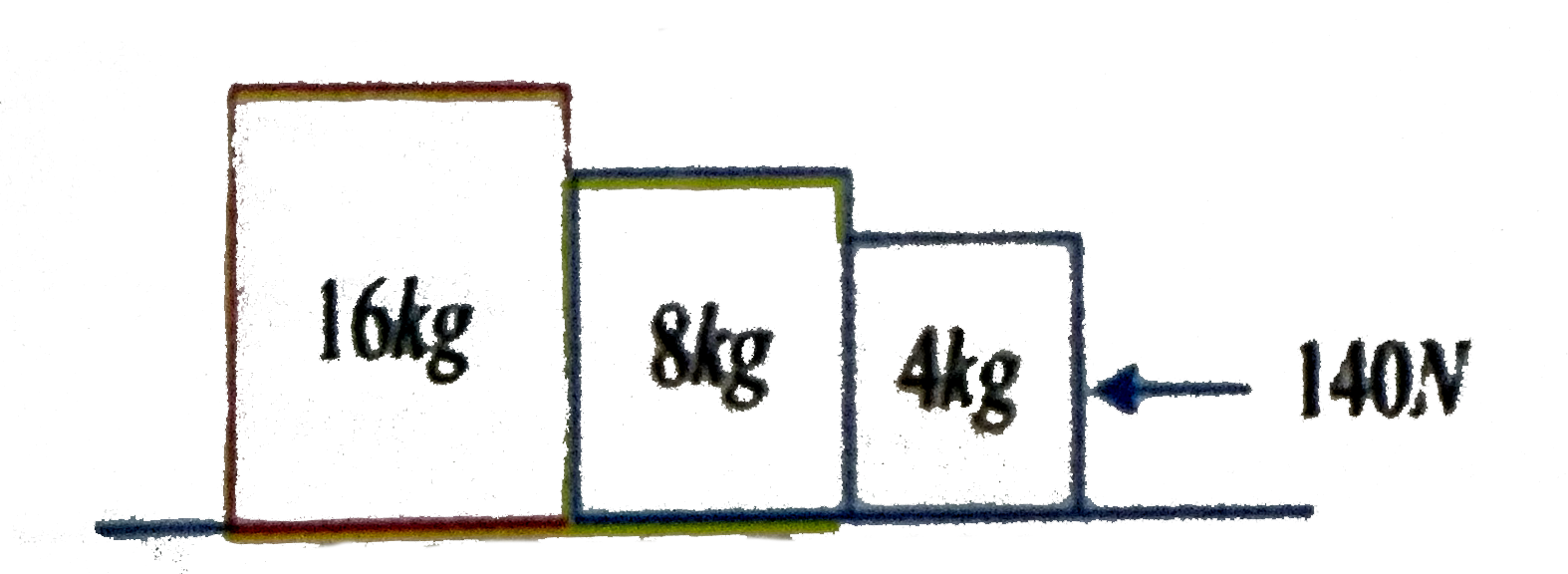Complete Solutions to LEVEL I(H.W) of chapter CIRCULAR MOTION of Class 11 book with complete answers and questions
| Class 11 | PHYSICS |
| Chapter | CIRCULAR MOTION |
| NARAYANA | LEVEL I(H.W) |
| Number Of Questions | 43 |
| Academic Year | 2023-24 |
A horizantal force `''F''` produces an acceleration of `6m//s^(2)` on a block resting on a smooth horizantal surface. The same force produces an acceleration of `3m//s^(2)` on a second block resting on a smooth horizantal surface. If the two blocks are tied together and the same force acts, the acceleration produced will be
View SolutionA `0.2 kg` object at rest is subjected to a force `(0.3hati-0.4hatj) N`. What is its velocity vector after `6 sec`
View SolutionA body of mass `2kg` is moving with a velocity of `vecu=3hati+4hatj m//s`.A steady force `vecF=hati-2hatj N` begins to act on it. After four second, the body will be moving along.
View SolutionThree forces `vecF_(1),vecF_(2)` and `vecF_(3)` are simultaneously acting on a particle of mass `'m'` and keep it in equlibrium. If `vecF_(1)` force is reversed in direction only, the acceleration of the particle will be.
View SolutionA block of metal weighing 2kg is resting on a frictionless plane. It is struck by a jet releasing water at a rate of `1kg s^(-1)` and at a speed of `5ms^(_1)`. The initial acceleration of the block is

View SolutionA body of mass `2kg` moving on a horizantal surface with an initial velocity of comes to rest after `2` second. If one wants to keep this body moving on the same surface with a velocity of `4 ms^(-1)` the force required is
View SolutionTen one-rupee coins are put on top of each other on a table. Each coin has a mass m . Give the magnitude and direction of
(a) the force on the `7^(th)` coin (counted from the bottom due to all the coins on its top .
(b) the force on the `7^(th)` coin by the eigth coin.
(c ) the reaction of the `6^(th)` coin one th `7^(th)` coin .
View SolutionA body of mass m collides against a wall with the velocity v and rebounds with the same speed. Its magnitude of change of momentum is
View SolutionBullets of `0.03 kg` mass each hit a plate at the rate of `200` bullets per second with a velocity of `50 m//s` and reflect back with a velocity of `30 m//s` . The average force acting on the plate in newton is
View SolutionA vehicle of mass `10 kg` is moving with a velocity of `5ms^(-1)`. To stop it in `1//10` sec the required force in opposite direction is
View SolutionAn impules is supplied to a moving object with the force at an angle `120^(@)`with the velocity vector. The angle between the impulse vector and the change in momentum vector is
View SolutionA `20 kg` body is pushed with a force of `7N` for `1.5 sec` then with a force of `5N` for `1.7 sec` and finally with the force of `10N` for `3 sec`, the total impulse applied to the body and change in velocity will be
View SolutionA body is acted on by a force given by `F=(10+2t)N`. The impulse received by by the body during the first four second is
View SolutionA unidirectional force `F` varying with time `t` as shown in the Fig. acts on a body initially at rest for a short duration `2T`. Then the velocity acquired by the body is

View SolutionIf the average velocityof a body moving with uniform acceleration under the action of a force is `''v''` and the impulse it receives during a displacement of `''s''` is `''I''`, the constant force acting on the body is giving by
View SolutionA `6.0 kg` object is suspended by a vertical string from the ceilling of an elevator which is acceleration upward at a rate of `2.2ms^(-2)`. the tension in the string is
View SolutionA young man of mass `60 kg` stands on the floor of a lift which is acceleration downwards at `1m//s^(2)` then the reaction of the floor of the lift on the man is (Take `g = 9.8 m//s^(2)`)
View SolutionThree masses of `16 kg, 8 kg` and `4 kg` are placed in contact as shown in Figure. If a force of `140N` is applied on `4kg` mass, then the force on `16kg` will be

View SolutionA block of mass `M` is pulled along a horizontal frictionless surface by a rope of mass `m` . Force P is applied at one end of rope. The force which the rope exerts on the block is:
View SolutionThree equal masses `A,B` and `C` are pulled with a constant force `F`. They are connected to each other with strings. The ratio of the tension between `AB` and `BC` is

View SolutionA coin is dropped in a lift. It takes time `t_(1)` to reach the floor when lift is stationary. It takes time `t_(2)` when lift is moving up with costant acceleration. Then
View SolutionA light string passing over a smooth light pulley connects two blocks of masses `m_1` and `m_2` (vertically). If the acceleration of the system is `g//8`, then the ratio of the masses is
View SolutionA pendulum bob is hanging from the roof of an elevator with the help of a light string. When the elevator moves up with uniform acceleration `'a'` the tension in the string is `T_(1)`. When the elevator moves down with the same acceleration, the tension in the string is `T_(2)`. If the elevator were stationary, the tension in the string would be
View SolutionThree block of masses `m_(1) = 10kg, m_(2) =20 kg` and `m_(3) = 30kg` are on a smooth horizontal table ,connected to each other by light horizontal string. A horizontal placed force `F = 60N` is applied to `m_(3)`, towards right find
(a) tension`T_(1)` and `T_(2)` and
(b) tension`T_(2)` if all of a sudden the string between `m_(1)` and `m_(2)` snaps.

View SolutionA bullet of mass `50g` is fired from a gun of mass `6kg` with a velocity of `400m//s`. Calculate the recoil velocity of the gun.
View SolutionA space craft of mass `2000 kg` moving with a velocity of `600m//s` suddenly explodes into two pieces. One piece of mass `500 kg` is left stationary. The velocity of the other part must be (in `m//s`)
View SolutionA person weighing `60kg` In a small boat of mass `140 kg` which is at rest, throws a `5 kg` stone in the horizontal direction with a velocity of `14m//s^(-1)`. The velocity of the boat immediately after the throw is (in `m//s`)
View SolutionA body of mass 40kg resting on a rough horizontal surface is subjected to a force `P` which is just enough to start the motion of the body. If `mu_(s)=0.5mu_(k)=0.4 , g=10ms^(-2)` an dthe force `P` is continuously applied on the body, then the accceleration of the body is.
View SolutionWhat is the angle of friction between two surfaces in contact , if coefficient of friction is `1//sqrt(3)` ?
View SolutionThe coefficient of friction between the ground and the wheels of a car between the ground and the wheels of acar moving on a horizontal road is 0.5 If the car starts from rest , what is the minimum distance in which it can acquire a speed of `72 km // h` ? take `g = 10 ms^(-2)` .
View SolutionAn eraser weighing `2N` is pressed against the black board with a force of `5N`. The coefficient of friction is `0.4`. How much force parallel to the black board is required to slide the eraser upwards
View SolutionA marble block of mass 2 kg lying on ice when given a velocity of `6m//s` is stopped by friction in 10s. Then the coefficient of friction is
View SolutionA block of weight `100N` is pushed by a force `F` on a horizantal rough plane moving with an acceleration `1m//s^(2)` when force is doubled its acceleration becomes `10m//s^(2)`. The coefficient of friction is `(10m//s^(-2))`
View SolutionA block of mass `5 kg` is lying on a rough horizontal surface. The coefficient of static and Kinetic friction are `0.3 and 0.1` and `g=10m//s^(-2)` If a horizontal force of `50N` is applied on the block, the frictional force is
View SolutionA heavy uniform chain lies on horizantal table top. If the coefficient of friction between the chain and the table surface is `0.5`, the maximum percentage of the length of the chain that can hang over one edge of the table is
View SolutionA body is sliding down an inclined plane forming an angle `30^(@)` with the horizantal. If the coefficient of friction is`0.3` then acceleration of the body is
View SolutionIn the above problem its velocity after `3` seconds in `ms^(-1)` is
View SolutionIn the above problem its displacement after `3` seconds is
View SolutionA block sliding down on a rough `45^(@)` inclined planes has half the velocity it would have been, the inclined plane is smooth. The coefficient of sliding friction between the the block and the inclined plane is
View SolutionA body of mass `10 kg` is lying on a rough inclined plane of inclination `37^(@)` and `mu = 1//2` , the minimum force required to pull the body up the plane is
View SolutionA body moves along a circular path of radius `5m`. The coefficient of friction between the surface of the path and the body is `0.5`. The angular velocity in `rad//s` with which the body should move so that it does not leave the path is `(g-10m//s^(-2))`
View SolutionA van is moving with a speed of `72Kmph` on a level road, where the coefficient of friction between tyres and road is `0.5`. The minimum radius of curvature, the road must have, for safe driving of van is
View SolutionA van is moving with a speed of `72Kmph` on a level road, where the coefficient of friction between tyres and road is `0.5`. The minimum radius of curvature, the road must have, for safe driving of van is
View Solution
LEVEL I(H.W) questions and complete solutions for chapter CIRCULAR MOTION of NARAYANA PHYSICS (HINGLISH) of Class 11